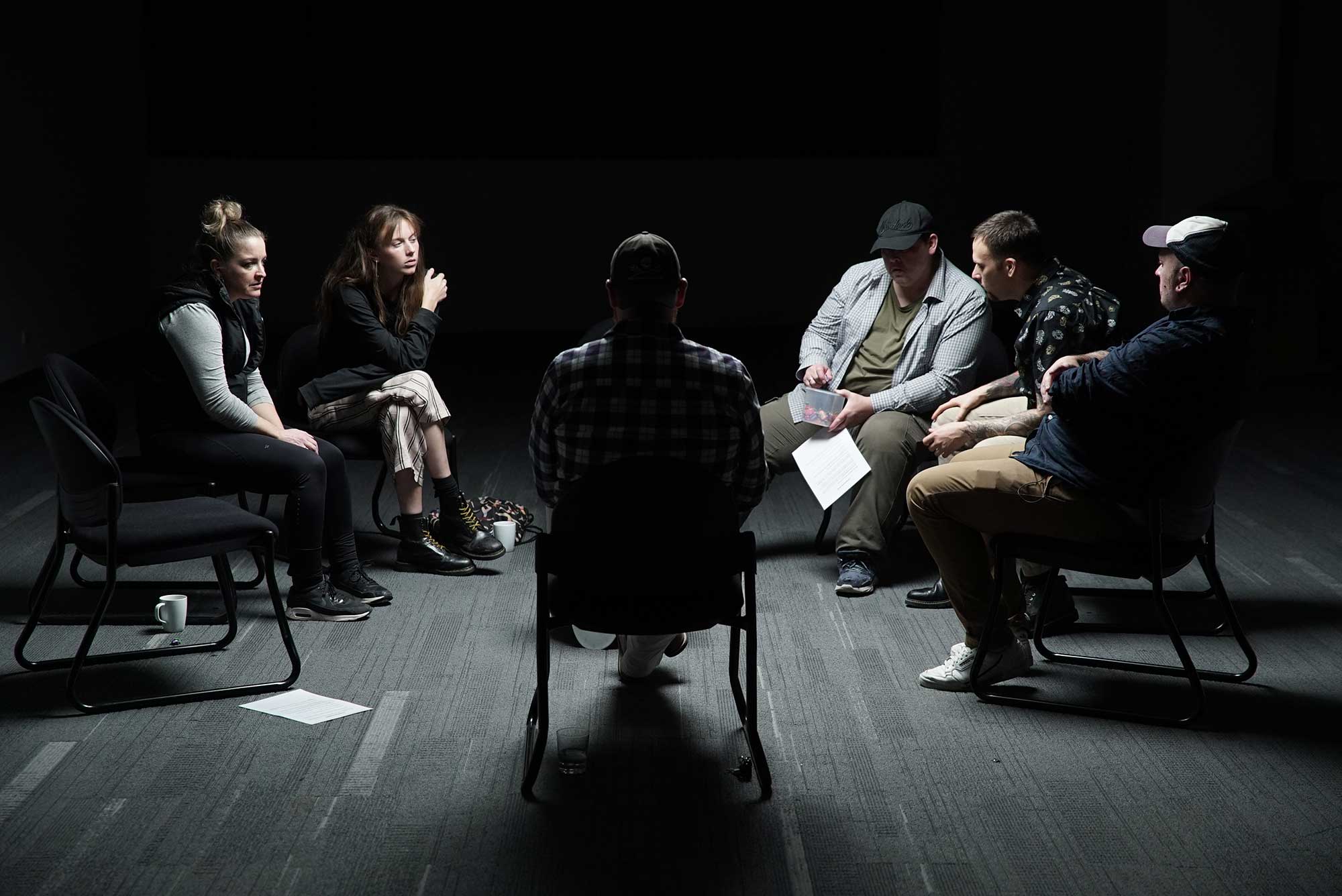About the treatment program program created for the documentary

Addiction is a chronic health condition that can be managed with treatment and support. Treatment works best when it is holistic, which means addressing all the biological, psychological and social factors that can cause or exacerbate an individual’s addiction.
The treatment program created for the documentary was tailored to the individual needs of participants, and is not currently available to the public. Turning Point developed this unique program specifically for the documentary series, to demonstrate the positive changes that are possible if people have access to an extended program of holistic, wraparound care. This is a treatment model that we think all Australians could benefit from and should have access to. If you would like to advocate for change to make this model of addiction care available to all Australians in need, join the national Rethink Addiction campaign here. Participants of the documentary series were able to receive a general set of key treatments and supports including:
- Medical care – including comprehensive medical assessment, withdrawal management and pharmacotherapy
- Counselling
- Peer support – delivered in both a one-on-one and and group format
- Family support
- Social work support
- 24/7 telephone and online bridging support
- Outreach support
- Additional bridging support at the conclusion of the program
The program was provided by a skilled multi-disciplinary team, including psychologists, social workers, peer support workers, and medical and nursing staff. Before commencing the program all the participants went through a comprehensive assessment process to determine the support options they needed.
Medical care
An addiction medical specialist comprehensively assessed each participant and oversaw his or her care. In addition to this, a range of medical treatments was offered to participants depending on where they were at in their recovery journey. Some of the participants attended Turning Point’s inpatient detox unit for medically supervised withdrawal management and others were prescribed pharmacotherapy to help manage their cravings.
Counselling
The counselling team worked with participants to develop strategies and put plans in place to address their alcohol, other drug use or gambling. Our counsellors worked with participants to understand the underlying issues that led them to develop their addiction, supported them to develop alternate coping skills, implement harm reduction and relapse prevention strategies, and individual recovery plans that addressed their needs. Counselling was provided by a group of clinical psychologists.
Peer support
Peer support from peer workers with lived experience was an integral feature of the program, with one-to-one support and weekly group meetings available for all participants.
Peer support was provided in recognition of the valuable role shared lived experience has in providing understanding, demonstrating that change is possible and reducing barriers to care.
The weekly peer support group meetings were conducted to:
- Provide a forum for people with lived experience of addiction to come together as equals
- Provide a safe environment which promotes a sense of belonging and being understood
- Offer hope and role models
- Facilitate mutual support, so that group participants could share their experiences, knowledge and advice
- Support participants to feel appreciated
- Encourage participants to practice altruism and generosity.
Each group was facilitated (and continues to be facilitated) by Turning Point Peer Support Workers using a model of care developed by an external provider, Self Help Addiction Resource Centre (SHARC). Members of the group set the agenda for each meeting and selected the topics they wanted to discuss.
Family support
The Self Help Addiction Resource Centre (SHARC) created and ran weekly family support groups for loved ones of the participants in the documentary.
Support for loved ones was provided in recognition of the shared impact addiction can have on friends and family members, and the crucial relationships and support these people provide to people experiencing addiction.
Social work support
The social work team were available to participants of the documentary, to assist with providing connections and support to help that was needed. Participants were able to work with the team to explore available supports within their social network and to connect with relevant social groups and supports in their local community. In addition, the social work team were able to coordinate with different support providers, whilst advocating for and helping participants engage with treatment.
Telephone and online bridging support
24/7 telephone and online bridging support was provided to participants to provide holistic, wrap-around care outside of scheduled appointments and program times. Participants were encouraged to make contact at any time they needed, to assist them to stay on track in their recovery journeys.
Outreach
People need to be met where they are at, and supported to access valuable care and treatment. Unfortunately, many current addiction treatment models are unable to breakdown barriers to care when people find it difficult to attend services, which could be for a multitude of reasons. For some participants in the documentary we added outreach support to their program, to facilitate appointments in their homes and proactive contact, and ensure they were able to stay connected with treatment and their supports.